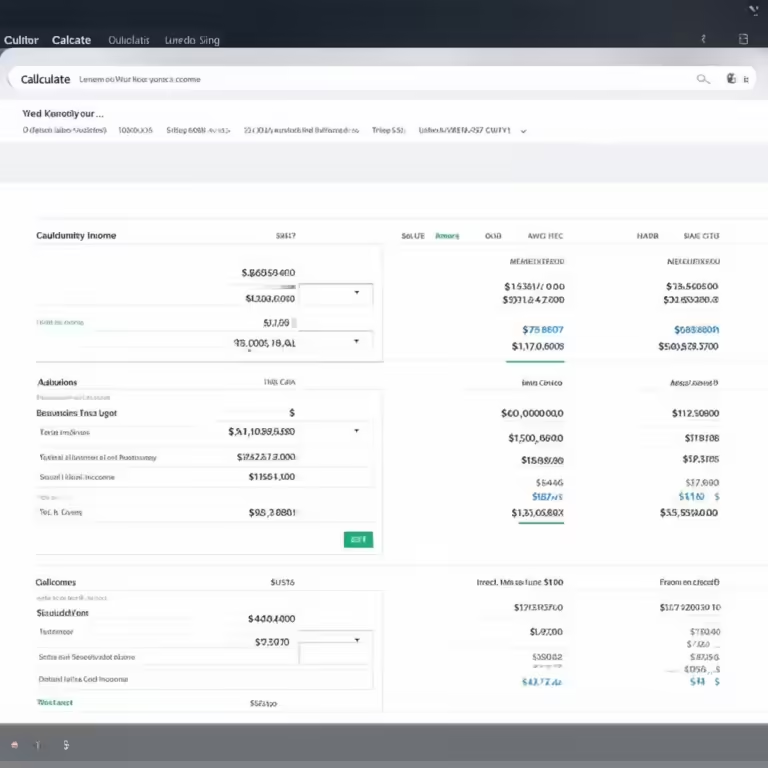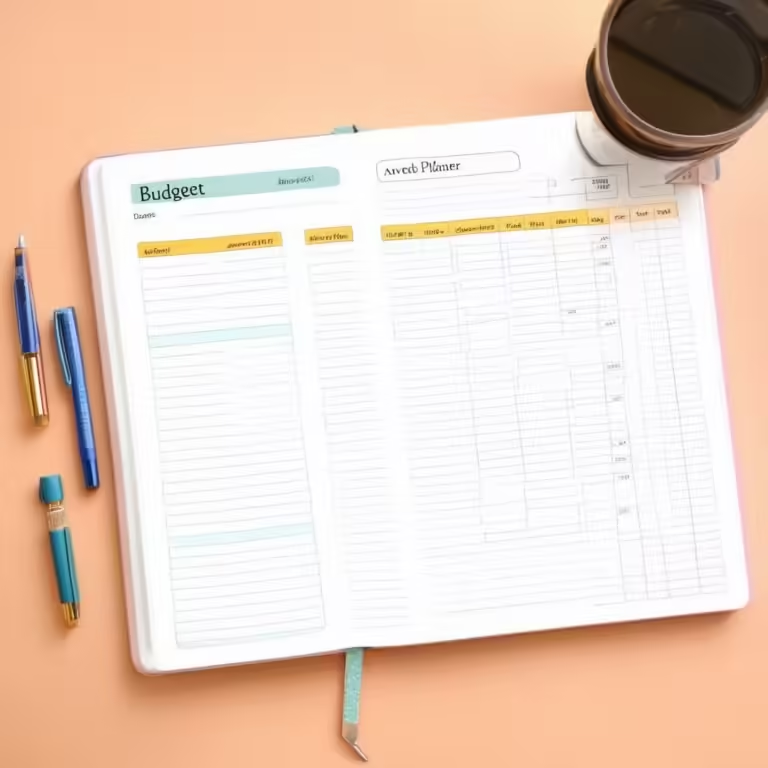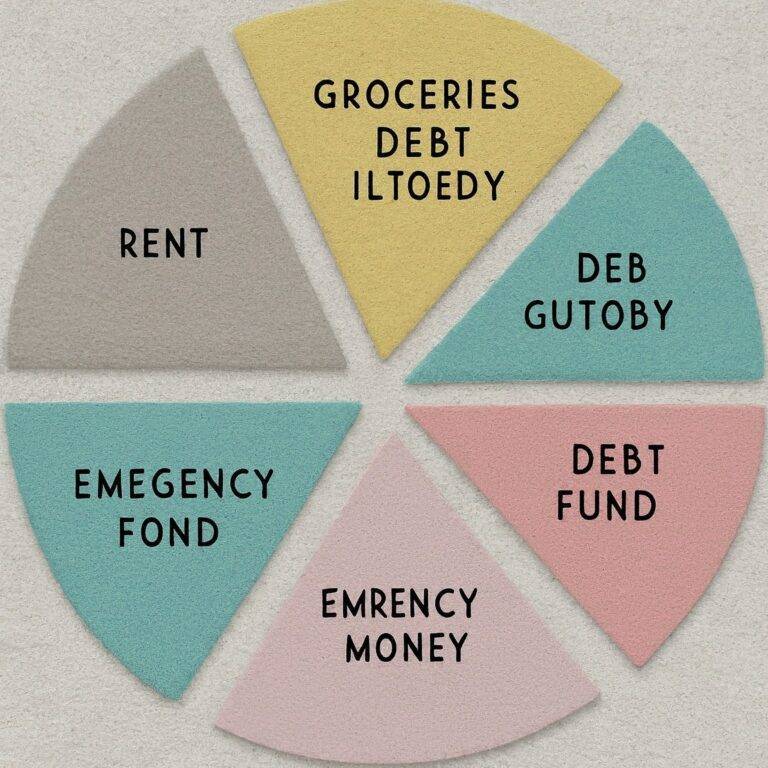Table of Contents
Saving money and budgeting are essential skills for anyone looking to achieve financial stability and reach their goals. Whether you’re dreaming of a down payment on a house, an exotic vacation, or simply want to build a safety net, mastering your budget is the key. This comprehensive guide, aligned with expert advice from the Consumer Financial Protection Bureau (CFPB), will walk you through the ins and outs of “save money budgeting,” offering practical tips and strategies to help you take control of your finances.

Understanding the Power of Save Money Budgeting
Budgeting is more than just tracking expenses; it’s a roadmap to financial empowerment. By creating a clear plan for your income and expenses, you can:
- Identify Spending Patterns: Uncover areas where you may be overspending and find opportunities to save.
- Set Financial Goals: Create a realistic timeline for achieving your dreams, whether it’s paying off debt, saving for retirement, or buying a car.
- Reduce Stress and Anxiety: Financial worries can weigh heavily on your mind. Budgeting can help alleviate this burden and provide peace of mind.
- Build a Better Financial Future: By making informed decisions about your money, you’ll be well on your way to financial security.
Crafting Your Save Money Budgeting: A Step-by-Step Guide
- Track Your Income and Expenses:
Begin by gathering your pay stubs, bank statements, and receipts. List all sources of income and categorize your expenses (housing, food, transportation, entertainment, etc.). This snapshot will reveal where your money is going.
- Set Realistic Financial Goals:
What do you want to achieve with your money? Define your short-term (saving for a vacation) and long-term goals (retirement). Having clear objectives will keep you motivated and focused.
- Choose a Budgeting Method:
There are various budgeting approaches, each with its strengths. Popular methods include:
- The 50/30/20 Rule:** Allocate 50% of your income to needs, 30% to wants, and 20% to savings and debt repayment.
- The Envelope System: Divide cash into envelopes for different spending categories. Once an envelope is empty, spending in that category stops.
- Zero-Based Budgeting: Assign every dollar a purpose, leaving no income unaccounted for.
- Create Your Budget:
Using your chosen method, allocate funds to each expense category based on your income and goals. Be sure to include savings as a non-negotiable expense.
- Track Your Spending:
Regularly review your spending habits to ensure you’re staying on track. Several apps and tools can help automate this process.
- Adjust and Review:
Life is unpredictable. Review your budget regularly and make adjustments as needed. Don’t be afraid to experiment with different strategies to find what works best for you.
Essential Tips for Successful Save Money Budgeting
Maximizing your savings potential and achieving your financial goals requires more than just creating a budget. It’s about adopting smart habits and strategies that seamlessly integrate “save money budgeting” into your everyday life. Here are some essential tips:
- Automate Your Savings:
The easiest way to save is to make it automatic. Set up recurring transfers from your checking account to your savings account each payday. This “pay yourself first” approach ensures that you consistently prioritize saving without even thinking about it. Consider using a high-yield savings account to maximize your interest earnings and accelerate your progress.
- Embrace the Power of Cash:
When it comes to discretionary spending, paying with cash can be a game-changer. Research shows that people tend to spend less when using physical currency because it creates a tangible connection to their money. Allocate a specific amount of cash for categories like entertainment, dining out, or personal care, and once it’s gone, resist the urge to dip into your cards.
- Hunt for Savings Opportunities:
Don’t settle for the first offer you find. Take the time to shop around and compare prices for recurring expenses like insurance premiums, cable bills, and internet service. You might be surprised at the potential savings you can uncover by simply switching providers or negotiating a better deal.
- Become a Home Chef:
Eating out can quickly eat away at your budget. Make a commitment to cook at home more often. Plan your meals, create a grocery list, and stick to it. Not only will you save money, but you’ll also have more control over the quality and nutritional value of your food.
- Prioritize Debt Elimination:
High-interest debt, such as credit card balances, can be a major obstacle to financial freedom. Make a plan to aggressively pay down your debt, starting with the highest interest rate accounts first. Consider consolidating debts or negotiating lower interest rates to accelerate your progress.
- Track Your Progress Regularly:
Review your budget and spending habits at least once a month. This allows you to identify areas where you’re exceeding your budget and adjust your spending accordingly. Celebrate your successes and learn from your mistakes. Remember, save money budgeting is a continuous process of improvement.
Overcoming Challenges in Save Money Budgeting
- Unexpected Expenses: Create an emergency fund to cover unexpected costs like car repairs or medical bills.
- Lifestyle Inflation: As your income increases, resist the urge to upgrade your lifestyle immediately. Continue to live below your means and prioritize saving.
- Motivation: Staying motivated can be tough. Remind yourself of your goals regularly and celebrate small victories.
The Rewards of Save Money Budgeting
By diligently following these save money budgeting strategies, you’ll be well on your way to achieving financial freedom. You’ll enjoy reduced stress, increased confidence in your financial decisions, and the ability to pursue your dreams. Remember, budgeting is a journey, not a destination. Be patient, persistent, and adaptable, and you’ll reap the rewards of your efforts.
Advanced Save Money Budgeting Strategies
- Sinking Funds: Create separate savings accounts for specific goals (e.g., holiday gifts, car maintenance). This helps you visualize progress and prevents dipping into your general savings.
- Debt Snowball or Avalanche: These methods prioritize paying off debt. The snowball method focuses on smallest balances first, while the avalanche targets highest interest rates.
- The “No Spend” Challenge: Periodically challenge yourself to not spend money on non-essentials for a set period (e.g., a week or a month). This can reset spending habits and reveal unnecessary expenses.
- Negotiate Bills: Don’t be afraid to call providers and negotiate lower rates for cable, internet, or insurance. You might be surprised at the discounts available.
- Side Hustles: Supplement your income with a part-time job or freelance work. This can accelerate debt payoff or savings goals.
- Use Budgeting Apps: Many apps (like Mint, YNAB, or Personal Capital) can help you track spending, categorize expenses, and set financial goals.
Save Money on Budgeting for Different Lifestyles
Regardless of your life stage, “save money on budgeting” is a universally applicable principle that can be tailored to your specific needs and circumstances. Let’s explore how different lifestyles can benefit from this approach:

Students:
As a student, your focus is often on education and building a future. However, learning to save money on budgeting now sets the stage for long-term financial success. Here’s how:
- Track Your Spending: Monitor your expenses meticulously. This will help you identify areas where you can cut back and save.
- Seek Out Student Discounts: Many businesses offer discounts to students. Take advantage of these opportunities to save on textbooks, transportation, entertainment, and more.
- Avoid Credit Card Debt: Credit cards can be a tempting trap. Use them responsibly, pay off your balance in full each month, and avoid accumulating high-interest debt.
- Consider a Part-Time Job: If your schedule allows, a part-time job can provide extra income to cover expenses and boost your savings.
- Embrace Frugal Fun: Look for affordable entertainment options like free events, picnics in the park, or movie nights at home.
Families:
With multiple mouths to feed and various expenses to manage, families need a robust budgeting strategy. Here are some tips:
- Involve Everyone: Make budgeting a family affair. Include your partner and children in financial discussions and decisions. This promotes transparency and encourages everyone to be accountable.
- Teach Money Management: Educate your children about the value of money and the importance of saving. Get them involved in creating a family budget and setting financial goals.
- Prioritize Needs Over Wants: Differentiate between essential needs and discretionary wants. Focus on providing for your family’s basic necessities first and allocate funds for wants only after needs are met.
- Plan Meals and Grocery Shop Strategically: Meal planning and creating a shopping list can significantly reduce food costs. Look for deals and coupons to further maximize your savings.
- Consider a Joint Account: A joint bank account can simplify bill payments and provide a clear overview of your family’s finances.
Single-Income Households:
Managing finances on a single income requires careful planning and prioritization. Here’s how to make it work:
- Essential Needs First: Focus on covering housing, food, utilities, transportation, and other essential expenses before allocating funds to discretionary spending.
- Minimize Unnecessary Expenses: Review your subscriptions, memberships, and other recurring costs. Eliminate anything you don’t use regularly or can live without.
- Emergency Fund is Crucial: Build a robust emergency fund to cover unexpected expenses like job loss, medical bills, or car repairs. Aim for three to six months’ worth of living expenses.
- Explore Side Hustles: Consider freelancing, consulting, or other side gigs to supplement your income and accelerate your savings goals.
- Track Your Progress: Regularly review your budget and spending patterns. This will help you identify areas where you can save more and stay on track towards your financial goals.
The Future of Save Money Budgeting
Technology is transforming the way we manage money. With the rise of online banking, budgeting apps, and automated savings tools, saving money has never been easier. Embrace these advancements to streamline your budgeting process and stay on top of your finances.
Additional Save Money Budgeting Resources
- Financial Advisors: If you’re overwhelmed or need personalized guidance, consider consulting a financial advisor.
- Online Communities and Forums: Connect with others who are on a similar save money budgeting journey for support and inspiration.
- Personal Finance Blogs and Websites: Many resources offer free articles, guides, and calculators to help you on your path to financial success.
A College Student’s Journey to Financial Independence: A Save Money Budgeting Success Story
Emily, a college student burdened with student loans and living expenses, decided to take control of her finances and build a future free from debt. Determined to “save money budgeting,” she embarked on a journey that would transform her financial life.
The first step was gaining clarity on her spending habits. Emily meticulously tracked every expense, no matter how small, using a budgeting app. This eye-opening exercise revealed areas where she was mindlessly overspending, particularly on dining out and impulse purchases.
With a newfound awareness, Emily crafted a realistic “save money budgeting” that aligned with her income and financial goals. She allocated specific amounts for necessities like rent, groceries, and transportation, while also setting aside a portion for debt repayment and savings.
To further optimize her spending, Emily employed several creative “save money budgeting” strategies:
- Cooking at Home and Meal Prepping: She replaced costly restaurant meals with home-cooked dishes and packed lunches, significantly reducing her food expenses.
- Thrifting and Second-Hand Shopping: Emily discovered the joy of thrift stores and online marketplaces, where she found stylish clothing and household items at a fraction of the cost.
- Utilizing Student Discounts: She took advantage of discounts offered to students on everything from software subscriptions to public transportation, maximizing her savings potential.
- Cutting Back on Subscription Services: Emily evaluated her subscriptions and canceled those she rarely used, freeing up extra cash for her budget.
- Taking on a Part-Time Job: To supplement her income, Emily secured a part-time job that fit her schedule, allowing her to accelerate her debt repayment and savings goals.
As Emily diligently followed her save money budgeting plan, she began to experience a sense of empowerment and control over her finances. Her debt steadily decreased, her savings account grew, and the financial stress that once plagued her began to fade away.
By the time she graduated, Emily had not only paid off a significant portion of her student loans but also accumulated a healthy emergency fund. This financial security allowed her to pursue her dreams without the burden of debt hanging over her head.
Emily’s story is a testament to the transformative power of “save money budgeting.” It demonstrates that even with limited resources, students can take control of their finances, achieve financial independence, and pave the way for a brighter future.
Her journey serves as an inspiration to anyone seeking to improve their financial well-being and demonstrates that saving money budgeting is a powerful tool for achieving financial freedom.
These inspiring stories demonstrate that saving money budgeting is achievable for people of all ages and income levels. By adopting the right strategies and staying committed to your goals, you too can achieve financial success.
Save Money Budgeting: Your Key to Financial Freedom
In a world of financial uncertainty and rising costs, mastering the art of “save money budgeting” becomes your most valuable asset. By embracing intentional spending and disciplined financial habits, you’re not just accumulating funds; you’re investing in a future where financial worries fade and your dreams take centre stage.

This isn’t about deprivation. It’s about empowerment. It’s about recognizing that every dollar saved through mindful budgeting is a dollar earned towards a life of greater freedom and possibility.
Whether you’re a young adult navigating your first paycheck, a growing family juggling multiple expenses, or a retiree seeking comfort in your golden years, the core principles to save money budgeting remain your steadfast guide.
- Young Adults: Laying a strong foundation early on sets the stage for a lifetime of financial security. Learning to budget wisely now allows you to build an emergency fund, tackle student loans, and start saving for significant milestones like a home or a wedding.
- Growing Families: Balancing the needs of children, mortgage payments, and daily expenses requires a well-crafted budget. By optimizing your spending and identifying areas to save, you can provide for your family’s present while securing their future.
- Retirees: Budgeting becomes even more crucial when living on a fixed income. Careful planning ensures you can cover living expenses, healthcare costs, and still enjoy leisure activities and travel.
Regardless of your life stage, prioritizing “save money on budgeting” is an investment in your peace of mind. When you have a clear financial plan, unexpected expenses become manageable, financial anxieties diminish, and a sense of control over your life blossoms.
Your Save Money Budgeting Success Story Starts Now
The journey to financial freedom begins with a single step. By taking the initiative to create and follow a save money budget, you’re investing in your future. Remember, it’s not about deprivation; it’s about making informed choices and empowering yourself to achieve your financial dreams.
With dedication, discipline, and the right tools, you can master your finances, build wealth, and live a life of financial security and abundance. So, what are you waiting for? Start your save money budgeting journey today and watch your financial goals become a reality!








